
Korea-Pacific Program
The program was founded in 1989 by Professor Emeritus Lawrence Krause in recognition of the growing importance of Korea to the United States and, more generally, to the Asia-Pacific. The program promotes greater understanding of contemporary Korea, both North and South, including international relations, politics, public policy and business environment.
Our Mission
The Korea-Pacific Program fosters its mission through a number of activities:
- Teaching core courses on Korea as one of five regional concentrations at the School
- Organizing and promoting research, including joint research projects with other universities and institutes
- Presenting seminar series, including the annual Krause Lecture on Korea-Pacific Affairs
- Providing a visiting scholars program for faculty and other researchers
- Promoting fellowships and internships for students interested in Korean studies
- Reaching to the local community on current events and issues
- Supporting a library containing a collection of over 12,000 titles, as well as new Korean language materials
Questions? Please contact Munseob Lee.
Upcoming Events
Our People
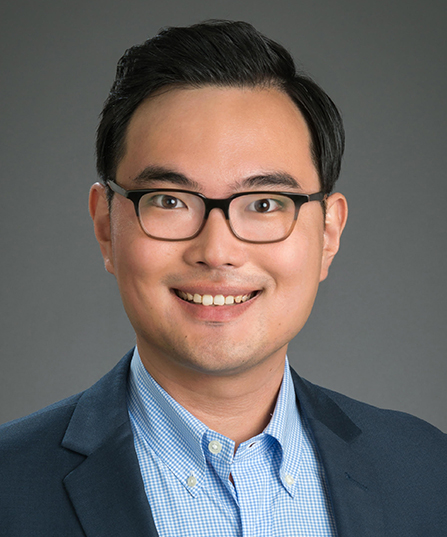 Munseob Lee
Munseob Lee
Munseob Lee is an associate professor of economics and the Lawrence and Sallye Krause Chair in Korean Studies at the UC San Diego School of Global Policy and Strategy. He is also a Director of the Korea-Pacific Program. His research focuses on macroeconomics, economic growth and development, and the Korean economy (South and North). He has been a short-term consultant at the World Bank, a visiting fellow at the Asian Development Bank, and a visiting scholar at the Federal Reserve Bank of St. Louis as well as the Federal Reserve Bank of Minneapolis. He received the Sherman Family Korea Emerging Scholar Award from the Korea Society and the Young Scholar Award from the Korea-America Economic Association.
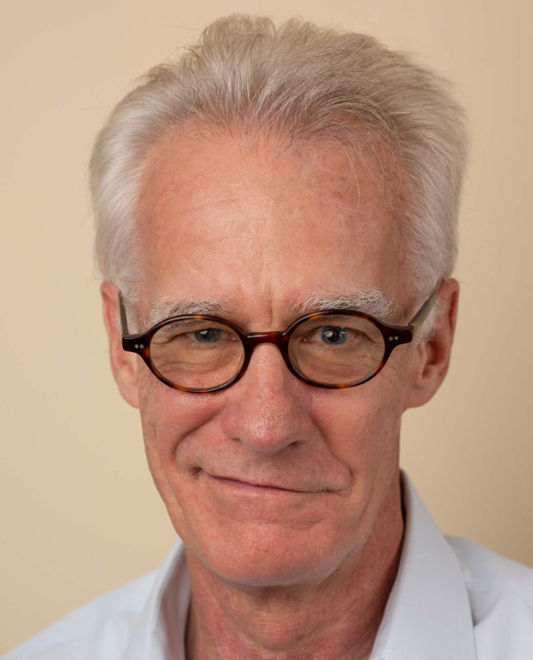 Stephan Haggard
Stephan Haggard
Haggard is a research professor and Lawrence and Sallye Krause Distinguished Professor Emeritus. He also serves as the Director Emeritus of the Korea-Pacific Program and Research Director for Global Governance at the University of California Institute for Global Conflict and Cooperation (IGCC). He teaches courses on the international relations of the Asia-Pacific and Korean peninsula at GPS covering political economy as well as security issues. He has done extensive research on North Korea in particular. In addition, he has a long-standing interest in transitions to and from democratic rule and the current phenomenon of democratic backsliding.
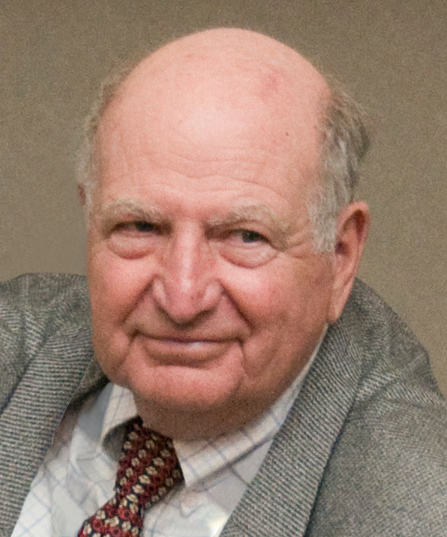 Lawrence Krause
Lawrence Krause
Professor Emeritus and Director Emeritus of the Korea-Pacific Program
Larry Krause is one of the world's top authorities on trade and economic issues in the Pacific region. His expertise includes international finance, the Asia-Pacific Economic Cooperation, the General Agreement on Tariffs and Trade, and economic forecasting in Pacific countries. Krause served as a senior member of the White House's Council of Economic Advisors in the Johnson administration, and has received numerous awards and honors throughout his academic career. He served as a consultant to the United States Department of State and as a U.S. government special representative for trade negotiations. Joining UC San Diego in 1986, Krause is director emeritus of the Korea-Pacific Program, which he founded in 1989 and for which he served as director for 10 years. He oversaw the annual Pacific Economic Outlook, an economic forecasting project on the Pacific region.
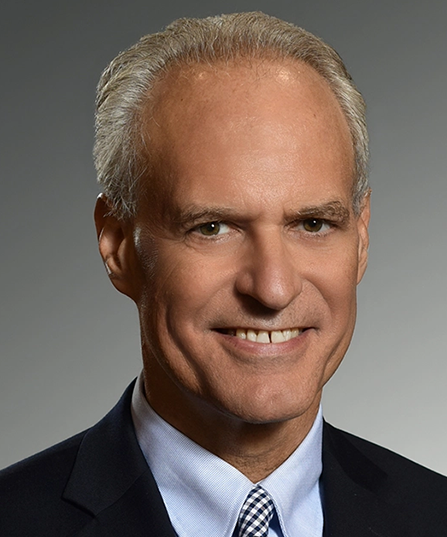 Henry Sokolski
Henry Sokolski
Sokolski is the executive director of the Nonproliferation Policy Education Center and teaches graduate-level classes on nuclear policy at the University of Utah and the Institute of World Politics. He is also a Senior Fellow for Nuclear Security Studies at the school's Korea-Pacific Program. He has worked in the Pentagon as Deputy for Nonproliferation Policy, as a consultant to the National Intelligence Council, as a member of the Central Intelligence Agency’s Senior Advisory Group, and as a Senate military and legislative aide.
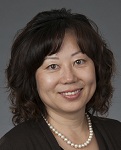 Jung Joo (JJ) Hwang
Jung Joo (JJ) Hwang
Hwang is a senior fellow at the Korea-Pacific Program. She also serves as the Director of International Innovation Initiative at Qualcomm Institute/Calit2 and Director of Global Partnership-Korea at Institute for the Global Entrepreneur to manage multi-million-dollar international R&D as well as accelerator projects. She has worked both in academia and industry, such as a Lab Head at Samsung Advanced Institute of Technology and professor at USC. She received the 2023 "16th World Korean Day" Prime Minister's Award from the Korean government for her visionary leadership as a Founder/President of non-profit organization, House of Korea, in Balboa Park.
Event Pictures
 Economic Statecraft in a Divided Peninsula: South Korea-U.S. Cooperation and North Korea Strategy
Economic Statecraft in a Divided Peninsula: South Korea-U.S. Cooperation and North Korea Strategy
Oct. 30, 2025
Speakers: Jung H. Pak, Andrew Yeo, Michael Beeman, Youngwan Kim, Stephan Haggard, Munseob Lee
Sponsor: Consulate General of the Republic of Korea in Los Angeles
 The U.S.-Republic of Korea Alliance at 70: Legacy and Future
The U.S.-Republic of Korea Alliance at 70: Legacy and Future
Oct. 4, 2023
Speakers: Allison Hooker, Yoo Myung-hee, Curtis M. Scaparrotti, Thomas J. Byrne, Youngwan Kim, Stephan Haggard, Munseob Lee
Sponsors: The Korea Society and Korea Defense Veterans Association
Visiting Scholars
Dabin Lim, Seoul National University
Dabin Lim is a visiting PhD candidate in residence from February 2025 to January 2026. Her doctoral research explores the historical variation in American military interventions, analyzing behavioral and narrative patterns. Her broader academic interests include international security, with a focus on military alliances and the US-ROK alliance.
 Yong Hyeon Yang, Korea Development Institute
Yong Hyeon Yang, Korea Development InstituteYong Hyeon Yang is a visiting scholar in residence from December 2025 to December 2026. Yang is a fellow at Korea Development Institute. As an economist, he studies economic impacts of policies focusing mainly on competition policy and regulatory policy. His recent research covers climate policy as well.
 Hyelim Son, University of Seoul
Hyelim Son, University of SeoulHyelim Son is a visiting scholar in residence from January 2026 to January 2027. Son is a professor at the School of Economics, University of Seoul. Her research focuses on development economics, labor economics and public finance. Son’s interests encompass various factors influencing human capital, such as economic conditions, wealth inequality and policy interventions, in both developing countries and Korea.
 Kieun Sung, Korea Military Academy
Kieun Sung, Korea Military AcademyKieun Sung is serving as a visiting scholar in residence from August 2025 to July 2026. He is a faculty member at the Korea Military Academy and an active-duty officer in the Republic of Korea Army. His research interests lie in international conflict and South Korea's defense policy, with a methodological emphasis on statistical analysis and text mining.
 Myungsoon Woo, Ministry of Science and ICT of Korea
Myungsoon Woo, Ministry of Science and ICT of KoreaMyungsoon Woo is a visiting scholar in residence from December 2025 to December 2026. She is a director at the Office of Science, Technology and Innovation Coordination, Ministry of Science and ICT in Korea. Her research focuses on government policies to promote critical and emerging technologies, with an emphasis on global cooperation between governments and research institutions. She is particularly interested in quantum technology and biotechnology.
Past Visitors
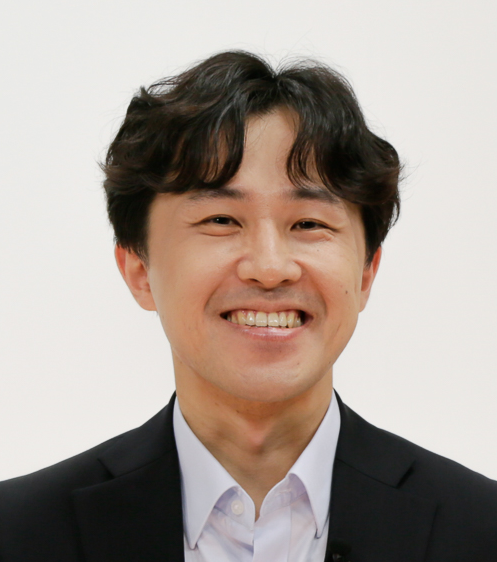 Joseph Han, Korea Development Institute
Joseph Han, Korea Development Institute
Joseph Han is a visiting scholar in residence from September 2024 to August 2025. Han is a fellow at Korea Development Institute (KDI). As a policy researcher, he actively conducts research and advice on labor and education policies in Korea. His current research focuses on the impact of AI on the Korean labor market.
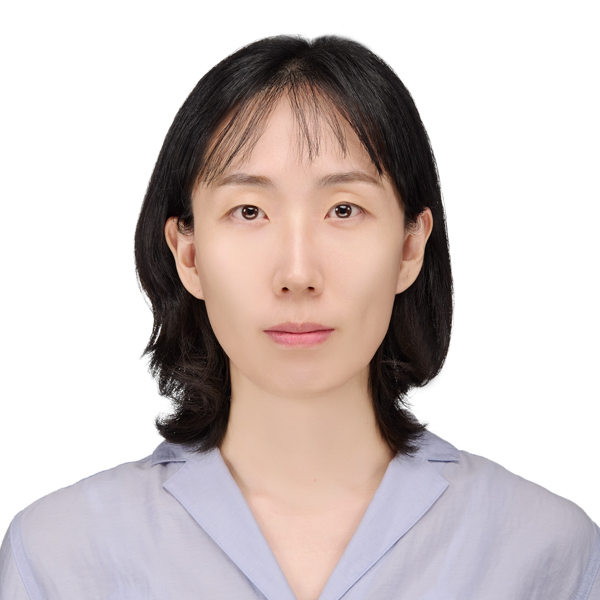 YoungWook Lee, Korea Development Institute
YoungWook Lee, Korea Development Institute
YoungWook Lee is a visiting scholar in residence from September 2024 to August 2025. She is a senior fellow in the Department of Public Finance and Social Policies at Korea Development Institute (KDI). Her research focuses on the evaluation of public policies in Korea, including cash transfers and social services, in terms of their effectiveness and fiscal soundness.
Seongsik Cho, Korea Institute of Science and Technology Evaluation and Planning
Seongsik Cho is a visiting scholar in residence from August 2024 to August 2025. He is a research fellow at Korea Institute of Science and Technology Evaluation and Planning (KISTEP). His recent research focus revolves around cultivating a research environment that balances researcher autonomy and responsibility. Specifically, He is keen on analyzing the impact of sanctions in preventing research misconduct and enhancing research performance.
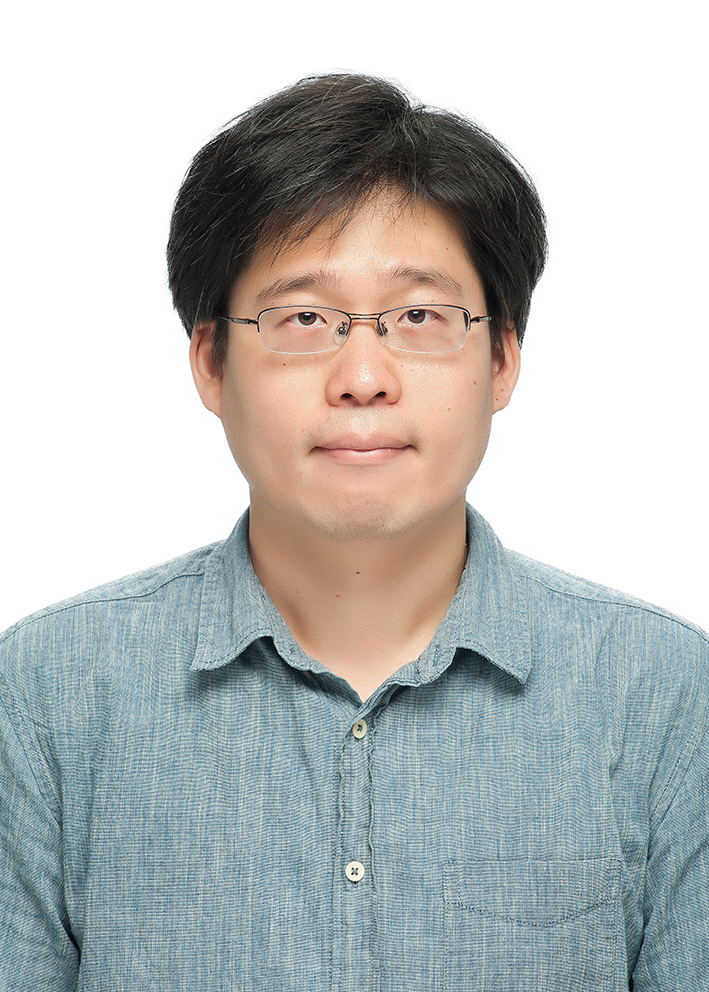 Myungkyu Shim, Yonsei University
Myungkyu Shim, Yonsei University
Myungkyu Shim is a visiting scholar in residence from January to August 2025. Shim is currently an associate professor at Yonsei University. As an applied macroeconomist, he is interested in various issues in the field of macroeconomics, including sources and consequences of business cycles, effects of the fluctuations on the labor market, and the role of incomplete/dispersed information in understanding financial markets.
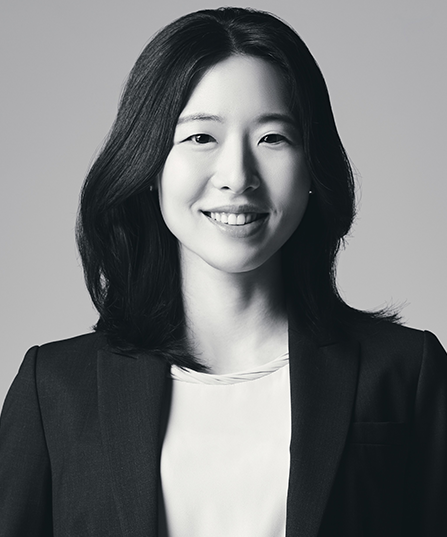 Jisoo Hwang, Seoul National University
Jisoo Hwang, Seoul National University
Jisoo Hwang is a visiting scholar in residence from January to December 2024. As an applied microeconomist, she is interested in using data to analyze economic and demographic issues in developed Asian countries. Much of her current research involves using administrative datasets to study topics related to low fertility, labor, education and health in South Korea. She is currently an associate professor of Economics at Seoul National University.
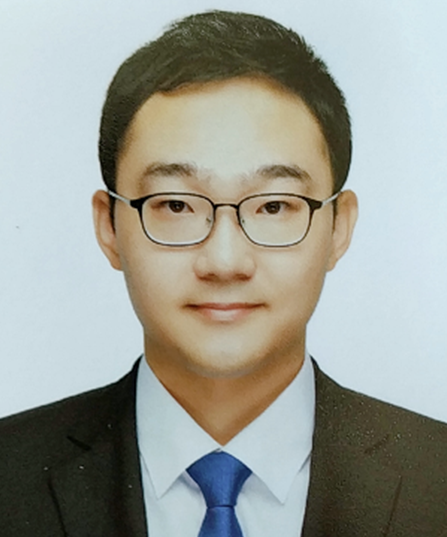
Kyoochul Kim, Korea Development Institute
Kyoochul Kim is a visiting scholar in residence from August 2023 to July 2024. He is a fellow at Korea Development Institute (KDI). His research interests are the North Korean economy, and major research topics include North Korea’s macro-economy and trade. He has published numerous policy research reports and academic studies.
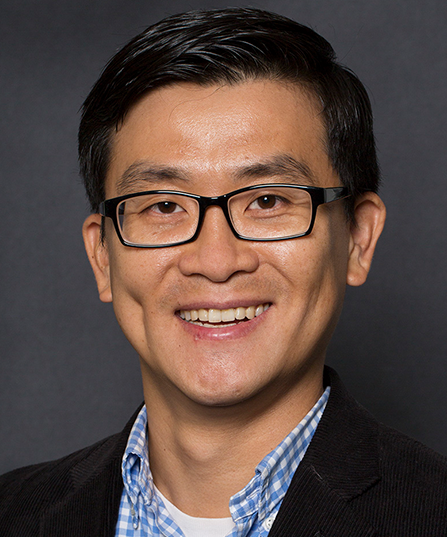 Woo Chang Kang, Korea University
Woo Chang Kang, Korea University
Woo Chang Kang is a visiting scholar in residence from September to December 2023. He is currently working on the causes and consequences of political polarization in South Korea, as well as its limitations. Beyond this focus, his wider research interests encompass political behavior, elections, and public opinion with particular attention to Korea and the U.S. Kang is an associate professor in the Department of Politics and International Relations at Korea University.
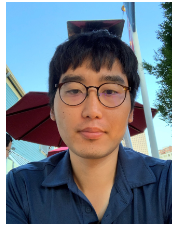 Seunghoon Na, Purdue University
Seunghoon Na, Purdue University
Seunghoon Na is a visiting scholar in residence from January to April 2024. Na is an assistant professor of economics at Purdue University. He is investigating how the inclusion of behavioral biases can improve our understanding of the dynamics of prices and quantities in the macroeconomy. This research is particularly focused on the international macroeconomic context, which includes understanding exchange rate dynamics, fluctuations in external balance and the design of optimal exchange rate policies.
 Edward Goldring
Edward Goldring
Edward Goldring was the inaugural visiting scholar in 2023 for the Korea Foundation UC San Diego Next Generation Visiting Scholar Program. At UC San Diego, Goldring is working on a project about leadership succession in North Korea. His border research examines comparative authoritarianism, especially elite politics, and he is also working on a book manuscript on purges in dictatorships. He is a Lecturer in the Department of Politics at the University of York in the UK, and has previously held fellowships at the University of Southern California’s Korean Studies Institute and the Hong Kong University of Science and Technology.
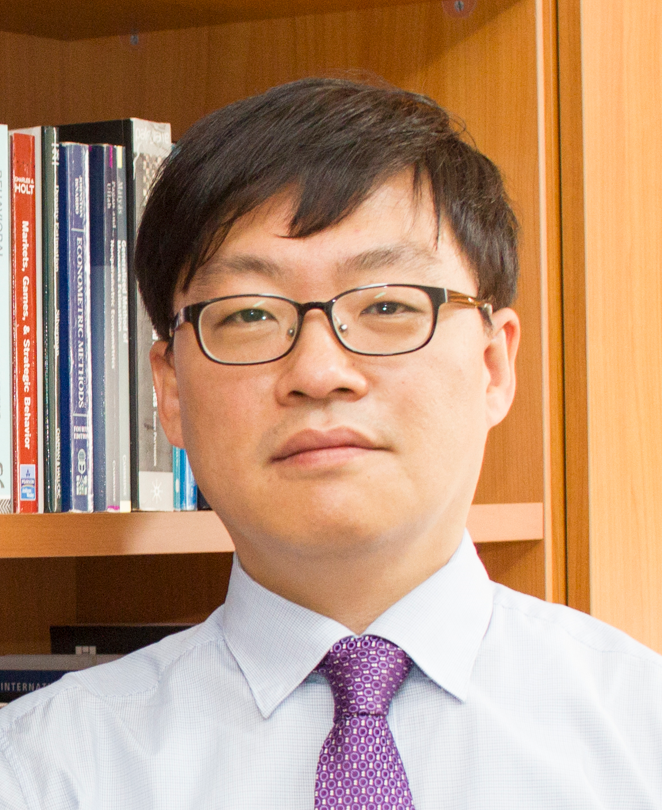 Jungmin Lee
Jungmin Lee
Jungmin Lee was a visiting scholar in residence from June 2019 to August 2020. He is a professor of economics at Seoul National University, South Korea and a research fellow at the Institute of Labor Economics (IZA), Germany. His current research focuses on labor market policies in Korea and education and health as key determinants for human capital.
Past Events (2024-2026)
Can Gender Quotas Reshape Beliefs about Women’s Competence?
Nov. 17, 2025 | Video
In this talk, Jay Euijung Lee explored how political parties in South Korea responded to gender quotas in municipal councils — a setting that included almost no women before the policy. Leveraging a unique feature where the quota applied to only one of two election arms, she showed how parties initially resisted by nominating fewer women in the unregulated arm but later reversed course as exposure to competent female leaders challenged their beliefs. The findings highlight how gender quotas not only increase female representation but also reshape perceptions of their competence. Yeilim Cheong of the University of Missouri offered remarks, and Jungmin Lee of Seoul National University moderated.
The Inside Story of How America Failed to Disarm North Korea
Nov. 13, 2025 | Video
For almost four decades, the United States has tried to stop North Korea’s attempts to build nuclear weapons and the missiles to deliver them. Based on more than 300 interviews with officials in Washington, Seoul and Beijing, as well as his own encounters with North Korean government officials over two decades, Joel Wit’s new book, “Fallout: The Inside Story of How America Failed to Disarm North Korea,” tells the story, which until now remained untold, of how six American presidents failed to stop Pyongyang. He points to Barack Obama and Donald Trump as the two presidents most responsible for that failure. As a result, the U.S. is now faced with the threat of North Korea’s missiles that can threaten its cities, and northeast Asia is on the verge of a nuclear arms race. Wit and Stephan Haggard, professor emeritus at the UC San Diego School of Global Policy and Strategy, talked about what the future of security looks like in the Korean Peninsula and beyond.
Economic Statecraft in a Divided Peninsula: South Korea-U.S. Cooperation and North Korea Strategy
Oct. 30, 2025
More than ever before, economic tools like sanctions, export controls and tech policy are playing a bigger role in foreign policy. For the Republic of Korea and the United States, these new strategies now lead to two urgent challenges: staying aligned in their economic strategies, and rethinking how to deal with North Korea. How can the Republic of Korea and the U.S. work more closely on economic statecraft to strengthen their alliance? And can those same tools be used more effectively to influence North Korea, where current sanctions may be losing their edge? To discover answers to these questions, our roundtable brought together experts in diplomacy, economics and policy.
Recruitment of Local Elites in Japanese Colonial Government in Korea
May 19, 2025
In this talk, Ji Yeon Hong explored the formation and legacy of colonial bureaucracy in Korea. Upon colonization through military dominance, many imperial governments struggled to build effective colonial bureaucracies. While skilled bureaucrats in the colonizer’s central government were reluctant to relocate, local elites were often unqualified or unwilling to serve. Hong has examined the recruitment of Koreans into Japanese colonial bureaucracy using original data from colonial personnel records. Assessing their ranks, she investigated how the colonial regime utilized local elites while minimizing disloyalty. She also traced bureaucratic continuity from the Korean Empire to post-independence South Korea.
The Effects of Free Subway Rides for Seniors and Welfare Implications
April 7, 2025 | Video
This virtual talk was presented by Suk Joon Son of the University of Tokyo, with Eunjee Kwon of the University of Cincinnati as discussant. Son discussed a paper which leveraged a quasi-experimental policy in Korea, along with novel mobility data, to assess the welfare consequences of granting older adults free subway access. He and his colleagues found a large increase in subway use, but primarily due to shifts from buses rather than cars. Simulations show that, unless one assumes unrealistically large health benefits or places outsized welfare weight on affluent seniors, the current free subway policy cannot be justified as optimal.
The New History of Korea: A Talk with Victor Cha and Ramon Pacheco Pardo
Feb. 27, 2025
An in-person conversation featured Victor Cha and Ramon Pacheco Pardo, who discussed their new book, “Korea: A New History of South and North.” This significant historical analysis is based on decades of research, offering a detailed examination of Korea’s modern history from the late 19th century through the Japanese occupation, Cold War division and present day. The book provides insight into the evolving identities of North and South Korea, highlighting their stark differences and exploring the possibilities for unification.
Roundtable on North Korea
Feb. 12, 2025
During his first term, President Donald Trump participated in a period of summit diplomacy on the Korean peninsula. However, the Hanoi summit of 2019 failed to catalyze meaningful negotiations. Following the onset of the war in Ukraine, North Korea quickly aligned itself with Russia and now has troops in the conflict. What are the prospects for another round of talks on the future of the peninsula? In this roundtable, we heard the views of four prominent North Korea watchers on possible Korea policy in the new administration.
AI, Digital Platforms and the Future of Work in Korea
Feb. 3, 2025
Artificial intelligence, robotics and other cutting-edge technologies are advancing at an incredible pace, with the potential to automate most tasks currently performed by humans. However, how these advancements will unfold in the real world remains uncertain, influenced by each country’s unique circumstances. In the Republic of Korea, a global leader in digital technology and innovation, large companies are actively adopting these advancements, driving a significant shift in labor demand. At the same time, digital platforms powered by new technologies are transforming the labor market, altering not only the tools and processes used for work but also the fundamental ways in which jobs are organized and performed.
Allies and Partners: Indo-Pacific Strategy in a Shifting International Order
Oct. 30, 2024 | Video
Allison Hooker discussed the importance of the United States’ Indo-Pacific allies in the increasingly turbulent global environment and shifting international order. She drew from 20 years of experience working in State Department and White House roles, discussing how these relationships have changed significantly in recent years and how they will continue to evolve — regardless of the outcome of the U.S. presidential election in November.
How "Superstar Firms" Shaped South Korea's Economic Miracle
Oct. 21, 2024 | Video
Jaedo Choi discussed his groundbreaking paper, “Superstars or Supervillains? Large Firms in the South Korean Growth Miracle.” Discover how South Korea’s rapid economic rise was fueled by the exceptional productivity of its largest firms, including Samsung.
Insights into North Korea: A Conversation with NK News CEO Chad O'Carroll
Oct. 14, 2024 | Video
Chad O'Carroll, the founder and CEO of NK News — an independent, subscription-based website that provides news and analysis of North Korea — joined professor Stephan Haggard at this virtual event to discuss recent developments in North Korea and their implications for U.S. policy.
Past Events (2020-2023)
2023 Sherman Family Korea Emerging Scholar Lecture by Prof. Munseob Lee
Dec. 6, 2023 | Video
Industrial policy is making a comeback. Signs of government intervention in support of industry are visible not only in China, but in the U.S., Europe, and Asia. Drawing lessons learned from Korea’s experience, Lee provides important insights for today’s policy-makers. A notable case to be discussed is the Korean government's implementation of the heavy and chemical industry drive in 1973. While that policy yielded positive outcomes for the targeted industries, it also resulted in a higher concentration within those sectors.
Status Externalities in Education and Low Birth Rates in Korea
Nov. 27, 2023 | Video
This webinar discussed a recent paper by Minchul Yum about connections between parents’ obsession with their children’s education and low fertility in South Korea.
The U.S.-Republic of Korea Alliance at 70: Legacy and Future
Oct. 4, 2023 | News Article | Video
Signed on Oct. 1, 1953 in the wake of the armistice, the U.S.-South Korea alliance has matured into a dynamic partnership.
The Effect of Job Loss on Health: Evidence from Administrative and Biomarker Data
May 22, 2023 | Video
The Korea-Pacific Program and Seoul National University welcomed Hyuncheol Bryant Kim, who discussed the findings of the paper which studies the causal effect of job displacement on mortality, morbidity and biomarkers using administrative and survey data covering the entire population in South Korea.
Robots in Nursing Homes
May 11, 2023
In this project we examined how robots that are designed to assist care affect nursing home staffing and quality of care in Japan. Not only is Japan at the forefront of adopting robots in long-term care, the Japanese context provides a unique opportunity to examine the impact of robots in an aged society.
Origins of Democratic Collapse: A Conversation with Joseph Wright
April 27, 2023
Joseph Wright, a political scientist at Pennsylvania State University, discussed his forthcoming book on the Origins of Elected Strongmen (with Erica Frantz and Andrea Kendall-Taylor). The book shows that personalist political parties significantly increase the risk of democratic backsliding and collapse.
Deindustrialization and Industry Polarization
April 24, 2023 | Video
We seek to understand the drivers of deindustrialization and industry polarization over time. We focus on two sets of drivers over time, sectoral productivity growth and sectoral trade integration. Using a dynamic, open economy, calibrated model of structural change, we find that both drivers are important, with productivity growth relatively more important for deindustrialization and trade integration relatively more important for industry polarization.
How Do Dictators Manage Elites Before Succession? Evidence from North Korea
Feb. 27, 2023
In 2011, North Korea pulled off a second leadership succession from Kim Jong Il to Kim Jong Un. How did they do it? Kim Jong Un has subsequently consolidated power, but in 2011, experts were skeptical about his ability to do so, or even survive in office. This presentation presented a comparative argument of how dictators manage elites to prepare for succession and tests it on the prominent but puzzling case of North Korea under Kim Jong Il. The evidence shows that Kim Jong Il helped facilitate a smooth transfer of power by building a power base for Kim Jong Un to help the latter stabilize the regime once he came to power. Although North Korea is often presented as an idiosyncratic case, similar processes occur in other autocracies.
Where is North Korea Going? A Roundtable
Feb. 13, 2023
After a brief period of hope around the 2018-19 summits between North Korea and South Korea, the U.S. and China, relations on the peninsula have once again descended into acrimony and tension. In this roundtable, a group of prominent North Korea practitioners and analysts dissected the current state of play around the Korean peninsula, from the opportunities for a return to diplomacy and the status of the U.S.-South Korea alliance, to the state of North Korea’s missile and nuclear program and its ventures into cybertheft.
The Ethics of United Nations Sanctions on North Korea: Effectiveness, Necessity and Proportionality
Feb. 6, 2023 | Video
The legal and political consensus underpinning United Nations resolutions on North Korea is that DPRK denuclearisation can be understood as a just cause. But were the means used by the United Nations in sanctioning North Korea also just? This question takes on particular urgency given the ongoing humanitarian challenges facing the country. Drawing on just war theory, Prof. Smith considers this question against the criteria of effectiveness, necessity and proportionality and reaches the conclusion that these standards were not met, imposing undue harm on North Korean citizens. The analysis raises questions about the ethics of sanctions, both generally and in the North Korean case, and how and if they should be designed going forward.
From Catch-up to Convergence of the Korean Economy and Innovation Systems
Jan. 23, 2023
Income level of Korea has now caught up with that of Japan. Korea faces a slowdown of growth rates and an increase in income inequality. At the same time, Korea experiences a transition from a catching up system specializing in short cycle technologies, such as IT, toward a mature system specializing in long cycle technologies such as bio-technologies. It is the end of the East Asian miracle and convergence toward Anglo-American capitalism.
Do Low-Skilled Immigrants Improve Productivity and Worsen Local Amenities? Learning from Native Mobility Response in South Korea
Nov. 7, 2022 | Video
In this presentation, Jongkwan Lee of the Ewha Womans University presented the effect of a significant increase in low skilled immigration in Korean municipalities during 2010-2015, on internal mobility of natives. By separating natives' moving for work-related and those moving for non-work related reasons, Lee and coauthors find that location experiencing large low skilled immigration attracted natives who moved for working purposes, but they experienced outflow of natives who moved for other reasons. Additional analysis of mechanisms reveals that immigration attracted those natives who value labor income over local amenities but pushed out those valuing more local amenities. Immigration while generating little net native migration, changed the selection of people in Korean municipalities.
Strategic Stability and Extended Deterrence on the Korean Peninsula: A Conversation with Ankit Panda
Oct. 17, 2022 | Video
In this webinar, Stephan Haggard, director of the Korea-Pacific Program, talked with Ankit Panda on the recent North Korean missile launches and the prospect of a seventh nuclear test. North Korea recently passed a new nuclear weapons law that outlined a much wider array of operational uses for its nuclear arsenal. What are the implications for strategic stability on the peninsula? What steps are being taken—and should be taken—to strengthen extended deterrence through the U.S.-South Korea alliance? And is there still a path to a nuclear or missile deal of some sort or is that door now completely shut?
An Empirical Investigation of South Korean Economic History using Spatial Data and Machine Learning
Oct. 10, 2022 | Video
Did the invasion of the North Korean Army during the 1950-1953 Korean War hinder rural development along the attack routes? In this webinar, I demonstrate how spatial data and machine learning algorithms can help prepare data to investigate the question. Spatial datasets include historical print maps from a century ago, current building register shapefiles, and digital elevation raster data.
The Economic Costs of Trade Sanctions: Evidence from North Korea
May 2, 2022
Sangyoon Park, assistant professor at the University of Hong Kong, provided evidence on the economic costs of the recent United Nations sanctions on North Korea. Exploiting a novel data set on North Korean firms, Park and coauthors construct measures of regional exposure to export and intermediate input sanctions and show that they cause sharp declines in local nighttime luminosity. Additional analysis of newly available product-level price data reveals that import sanctions led to significant increases in market prices. They then estimate a quantitative spatial equilibrium model using cross-region variations. The model implies that the sanctions reduced the country’s manufacturing output by 20%. They also further quantify the potential impact of alternative sanction scenarios. This webinar is part of the Seoul National University-UC San Diego Joint Webinar Series.
Who innovates in Korea?
April 11, 2022
Since the 1990s, Korea has become a leader in global innovation. But who are the innovators, and what do they innovate? In this presentation, Jihong Lee from Seoul National University discussed his latest research on patent data, both domestic and international, to offer an extensive picture of Korean innovation. This webinar was part of the Seoul National University-UC San Diego Joint Webinar Series.
The Korean Election
March 14, 2022
On March 9, Korea held presidential elections, the eighth round of them since the transition to democracy in the late 1980s. The outcome will be consequential: will Lee Jae-myung continue the legacy of incumbent Moon Jae-in or will the election mark a swing back toward a conservative candidate, Yoon Seok-youl? The answer will have implications not only for domestic politics but for foreign policy on the peninsula and the U.S.-ROK alliance. Erik Mobrand, RAND Corporation and Stephan Haggard, UC San Diego discuss the results.
From Manners to Rules: Regulating Smoking in Japan and Korea
Feb. 28, 2022
Celeste Arrington from George Washington University discussed how the U.S., Japan and South Korea have historically had informal, cooperative and bureaucratic approaches to law and regulation, yet in the new millennium we have seen a greater role for the courts in both countries.
The Park Chung Hee Legacy: Evidence from the New Village Movement
Jan. 24, 2022
In this talk, Jean Hong discussed how micro-level data from South Korea’s New Village Movement, a 1970s rural development program implemented under dictator Park Chung-hee to show how dictators can create long-lasting legacies. Townships receiving large cash transfers not only cast more votes for Park’s incumbent party at the time, but were more likely to vote for Park Geun Hye in 2012. In this new paper, Hong and her co-authors show that these effects were not driven by villagers’ long-term income gains or enhanced social capital due to the development program, but instead by the unwavering support of the beneficiary villagers for the dictator, whose legacy remained strong long after democratization.
The Rise of a Network: Spillover of Political Patronage and Cronyism to the Private Sector
Nov. 1, 2021
This event disucssed a recent paper where the authors look at networks that gain access to political power also gain control over the resource allocation in the private sector.
The Future of the U.S.-ROK Alliance: A Conversation with Ko Yunju
Oct. 18, 2021
The successful summit between Presidents Biden and Moon nonetheless left a host of outstanding issues for the two countries to work through over the coming months. These range from OPCON transfer, to the ambitious summit agenda, to growing tensions with North Korea. In this conversation, Prof. Stephan Haggard will host a dialogue with Ko Yunju, Director General of the North American Affairs Bureau, Ministry of Foreign Affairs Republic of Korea.
Missile Tests and Activity at Yongbyon: A Conversation with Jeffrey Lewis
Oct. 11, 2021
The recent cruise missile test and new evidence about the operation of facilities at Yongbyon have once again brought the North Korean nuclear and missile programs into the spotlight. In this conversation with Stephan Haggard, Jeffrey Lewis looked both at the technical features of the recent test and the wider significance of North Korea’s continued commitment to advance its weapons program.
The Plant-Level View of an Industrial Policy: The Korean Heavy Industry Drive of 1973
Oct. 4, 2021
The Korean government promoted heavy and chemical industries between 1973 and 1979, and there has been a long-standing debate on its effectiveness. Analyzing newly digitized plant-level data, we find that the drive of 1973 did increase output but did not increase productivity of targeted industries, because resource misallocation within the targeted industries worsened.
Sectoral Shift, Technological Change, and Old Labor: Evidence from the U.S. and South Korea
May 10, 2021
This presentation provided evidence of how rapid changes in the industrial structure and production technology affect the employment and retirement of aged people, specifically, in the U.S. from 1880 to 1940 and in South Korea from 1960 to 2017. Both nations experienced radical economic and social changes during these periods. The U.S. transformed from an agrarian society into the world’s strongest industrial power as the Second Industrial Revolution occurred and matured. Similarly, South Korea transformed from a poor country recovering from a devastating war into one of the fastest-growing economies in the late 20th century. Therefore, these two historical cases from opposite sides of the globe and during different time periods may offer useful insights into the effects of rapid and radical economic changes on aged labor.
Korea and the Indo-Pacific Strategy: A Conversation with Heino Klinck, former Deputy Assistant Secretary of Defense
April 19, 2021
The U.S. relationship with the two Koreas will necessarily engage the wider geostrategic landscape, and likely continuity in an Indo-Pacific Strategy. Stephan Haggard, director of the Korea-Pacific Program, will engage with Heino Klinck, former Deputy Assistant Secretary of Defense, on the outlook for U.S.-China relations and how that will effect U.S. relations with Japan and the two Koreas.
Women, Work, and Family in South Korea
April 12, 2021
South Korea’s fertility rate is among the lowest in the world, with a total fertility rate of less than 1 birth per woman. In this talk, we study how women's work and family outcomes have changed across birth cohorts and discuss why women in South Korea seem to be increasingly forgoing "family."
Immigration in East Asia: How Grassroots Efforts Lead to Integration
Jan. 19, 2021
Until the early 2000s, Japan, South Korea and Taiwan all had restrictive immigration policies and effective social exclusion of immigrants. But since then, their paths have diverged. Whereas Taiwan has remained restrictive, Japan took incremental steps to expand immigrant services at the grassroots level, and South Korea enacted sweeping immigration reforms. What explains these divergent patterns of immigrant incorporation? A deep analysis of the role of civil society actors, including immigrants themselves, reveals how immigrant interests and actors shape public policy. Our conversation will explain the data base and discuss what these different paths mean for the three societies and economies. (Cosponsored by the Korea-Pacific Program.)
Dying for Rights: Putting North Korea's Human Rights Abuses on the Record
Dec. 7, 2020
North Korea’s human rights violations are unparalleled in the contemporary world. In "Dying for Rights," Sandra Fahy, associate professor of anthropology at Sophia University in Tokyo, provides the definitive account of the abuses committed by the North Korean state, domestically and internationally, from its founding to the present.
Using Satellite Imagery to Study North Korea
Nov. 23, 2020 | PDF
Intelligence used to be the purview of highly-trained professionals who relied heavily on classified information. A new model is emerging in which analysts outside the government collect and analyze open-source information. An important example of this development is the growing use of satellite imagery for intelligence purposes. In this webinar, we look both at the general issue of how such intelligence is collected and analyzed and at some particular examples from the study of North Korea.
Panel on Purges in Communist Systems: A Comparative Perspective
Nov. 16, 2020 | PDF
Purges are a recurrent feature of rule in Communist and other authoritarian systems: leaders both remove potential sources of opposition, but also recruit and promote new cadre that are presumed to be loyal. In this webinar, we look at the problem of purges by taking a comparative perspective on the North Korean, Chinese and Vietnamese systems.
Panel on the North Korean Economy: What Do We Know?
Nov. 9, 2020 | PDF
North Korea, a country of 25 million people, is one of the most secretive nations in the world; even basic statistics are treated as state secrets. Despite a high level of interest, the structure and functioning of the North Korean economy are poorly understood. In this talk, Byung-Yeon Kim, Bill Brown, and Stephan Haggard discussed the present state of the North Korean economy, how we know about it and possible implications for the international relations of the peninsula.
New Research on Inequality in South Korea
Nov. 2, 2020
Speaker: Jong-sung You, Professor and Director of the Korea Inequality Research Lab, Gachon University
In recent years, data on inequality on Korea has improved dramatically. The Korean Government's survey and administrative data on income distribution is now being used more widely, and Korean scholars are participating actively in the new World Inequality Database project and its efforts to create Distributional National Accounts (DINA) data. In this presentation, Prof. Jong-sung You reports on the work of his Korea Inequality Research Lab on the extent of inequality in Korea and the resulting debates on how—and whether—to address it through innovative social policies.
National Belonging and Civic Integration: Evidence from North Korean Refugees
Oct. 26, 2020
Speaker: Aram Hur, Assistant Professor, Department of Political Science, University of Missouri
Scholars and policymakers often debate the merits of the “civic turn” in migrant integration policies, but most studies draw from Western host cases. How exportable is the civic model outside of this region, where migration often occurs among co-ethnics in contexts of strong national legacies? Through the “most different” case of North Korean refugees in South Korea, Hur shows that when newcomers define successful belonging in national terms, exclusively civic integration efforts backfire. The findings challenge the one-size-fits-all assumption about civic integration.
The Space Issue in Northeast Asia
Oct. 19, 2020
Speaker: Sam Wilson, Policy Analyst, Center for Space Policy and Strategy, The Aerospace Corporation
In contrast with the past, when space was dominated by a few major powers, space is becoming much more democratized with more countries and companies engaging. For the U.S., this increasing activity presents risks and opportunities, particularly in Northeast Asia. China is pursuing weapons that could threaten critical U.S. space-based systems, and allies—such as Japan and the Republic of Korea—are developing space security assets of their own, which can enhance and add resiliency to U.S. capabilities. As these countries acquire and rely more on space systems, the space dynamic will play an increasingly important role in the region.
Panel on COVID-19 and the Korean Economy
Oct. 12, 2020 | PDF
South Korea has been successful in the containment and management of the spread of the disease. However, despite its capable handling overall, South Korea has not been able to avoid a COVID-19 induced recession. This posed a great challenge to workers amid the drying up of job opportunities. In this talk, Professor Jungmin Lee (SNU), Professor Munseob Lee (UC San Diego), and Professor Stephan Haggard (UC San Diego) will discuss South Korea's strategies, economic forecast, and consequences in the labor market and macroeconomy.
The Korean Peninsula: A Mexican Perspective
Oct. 5, 2020 | PDF
Latin America-East Asia ties are growing apace. Mexican Ambassador to Korea Bruno Figueroa will share his observations on Mexico’s interests in East Asia, and with respect to Korea in particular.
Becoming Kim Jong-un
Sept. 28, 2020
Ten years ago this month, Kim Jong Un made his official debut as the heir of North Korea. Since then, he has accelerated the development of the country’s nuclear weapons program, undertook a massive building boom, and sought to reshape the conventional narrative of North Korea from a famine-stricken, economically-hobbled state to that of a dynamic, youthful, and modern country. With the summits of 2018 and 2019, Kim flirted with diplomacy and established an unlikely personal relationship with President Trump. But since the failed Hanoi Summit in February 2019, nuclear talks have stalled, leading to questions about what we should expect from this enigmatic leader in the coming months and years. Former CIA officer Jung Pak, author of "Becoming Kim Jong Un" and a senior fellow at the Brookings Institution, explains Kim’s rise, what’s going on in North Korea today, and key lessons that Kim might have gleaned from his brief foray into diplomacy with the United States.
Succession in North Korea
June 8, 2020
When Kim Jong Un disappeared from public view recently, there was rampant speculation of what would occur were he to die or become incapacitated. His return to the scene does not answer the question. On this panel, we tap some top analysts of the North Korean political system to discuss what we know about the top leadership, the political system more generally and the prospects for political change.
The Business Reinvention of Japan
June 2, 2020
How has Japanese business responded to the rise of China? In response to the globalization of supply chains, Japanese companies have moved upstream to become providers not of consumer end products, but of critical input parts, components and advanced materials that anchor global supply chains. This has created a new trade symbiosis in Northeast Asia. We joined Professors Stephan Haggard and Ulrike Schaede for a conversation of Ulrike Schaede’s brand-new book on this topic, and what Japan’s emerging “aggregate niche strategy” means for economic recovery in Asia after COVID-19 and the business relations between Korea, China and Japan.
Book Launch: "Queer Korea"
June 1, 2020
“Queer” Koreans have historically been ignored, minimized and erased in narratives of their modern nation. This interdisciplinary book project—just published in the U.S. and soon to be translated into Korean—challenges such marginalization through critical analyses of non-normative sexuality and gender variance in Korea. Chapters range over a variety of topics, from shamanic rituals during the colonial era and B-grade comedy films under Cold War dictatorship to toxic masculinity in today’s South Korean military and transgender confrontations with the resident registration system. Todd Henry (editor and author) explained how the project arose and some of its key findings. Jin-kyung Lee (discussant) elaborated on the significance of the volume and its reception, and was followed by questions and answers. Co-sponsored with the Transnational Korean Studies.
North Korea’s Nuclear Weapons Program and the Demise of the Agreed Framework
May 20, 2020
The Center for Peace and Security Studies' National Security Policy Speaker series presented a ZOOM web talk with William Tobey, senior fellow at the Belfer Center for Science and International Affairs, Harvard Kennedy School. Cosponsored by the Korea-Pacific Program.
Tracking North Korean Missile Programs
May 11, 2020
New tools have allowed open source researchers to track the development and testing of missiles in ways that only governments might have done just a decade ago. These tools allow tracking locations involved in testing and production, as well as to model the missiles themselves. Professor Jeff Lewis, of Middlebury Institute of International Studies at Monterey and MIIS's James Martin Center for Nonproliferation Studies, talked about the art and science of tracking missile development in North Korea and what that tells us about future trends.
Living with the North Korean Bomb
May 6, 2020
Dr. Gary Samore discussed the evolution of North Korea’s nuclear capabilities and strategy, focusing on the most significant technical developments since North Korea’s first nuclear test in October 2006. He also assessed the successes and failures of U.S. nonproliferation efforts toward North Korea (including President Trump’s high level engagement with Chairman Kim Jung Un) and prospects for managing the challenges of a nuclear-armed North Korea. Co-sponsored with the National Security Policy Speaker series.
The Cost of Secrecy: Welfare Effects of the Disclosure of COVID-19 Cases
May 4, 2020
In the fight against the COVID-19, South Korea’s case stands out. The country, despite facing a large outbreak, was able to flatten the curve of new infections without shutting down its economy. Transparent information about the positive cases has helped South Korea not only to maximize the odds of testing the people most likely to be infected, but also has allowed people to engage in “targeted” social distancing by avoiding places visited by those that tested positive. In this talk, Professor Stephan Haggard and Professor Munseob Lee discussed South Korea’s strategies. Lee introduced his recent work on measuring welfare effect of the disclosure. Data from mobile phone company quantifies degree of “targeted” social distancing. By combining meta-population SIR model in epidemiology and quantitative spatial model in economics, Lee described trade-off between public health and economic output, and provides evidence-based policy recommendations.
Media
Watch the latest episode below; click the playlist icon on the top right to find previous episodes.
Stephan Haggard won the Revelle Medal, the highest honor given by the chancellor to a UC San Diego faculty member
Munseob Lee won the Sherman Family Korea Emerging Scholar Award from the Korea Society
Papers
Studying Economic Black Holes: Lessons from North Korea, by Stephan Haggard, Kyoochul Kim, and Munseob Lee.
The Plant-Level View of an Industrial Policy: The Korean Heavy Industry Drive of 1973, by Minho Kim, Munseob Lee, and Yongseok Shin.
The Cost of Privacy: Welfare Effects of the Disclosure of COVID-19 Cases, Review of Economics and Statistics, Volume 104, Issue 1, Jan. 2022, pp.176-186, by David Argente, Munseob Lee and Chang-Tai Hsieh.
New Frontiers for Security Cooperation with Seoul and Tokyo (Occasional Paper 2101)
"Chapter 1: The Current and Future State of Security Ties with Seoul and Tokyo" by Stephan Haggard
